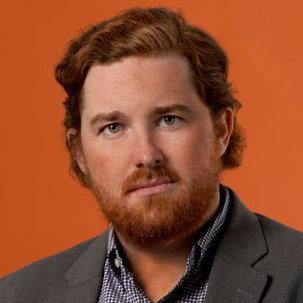TOKYO — Gov. Wes Moore spent his last four days promoting Maryland’s burgeoning quantum computing industry to Japanese investors only to have President Trump’s ever-changing tariff policies cast a shadow over an otherwise upbeat trip.
“It’s really difficult that just in the days that we have been here in Japan, we’ve probably heard three different announcements,” the governor said, adding that a lack of consistent trade policy made international relations and deal making difficult.
Monday in Tokyo had been a celebratory affair for the governor’s delegation. Peter Chapman, the executive chairman of Prince George’s County-based IonQ, the first publicly-traded company to focus solely on quantum computing, signed an agreement to work with Japan’s National Institute of Advanced Industrial Science and Technology. Moore, Chapman and other leaders in the field participated in a roundtable discussion with Japanese businessmen, government officials and scientists about strengthening business and research ties with Maryland, which Moore is hoping to make “the capital of Quantum.”
Given the need to diversify the state’s economy and ongoing budgetary constraints, becoming a leader in quantum computer development would be “really good for Maryland’s balance sheet,” Moore said.
“It’s gonna be really good when it comes to Maryland’s larger contribution to the world,” he added.
But by Tuesday morning Tokyo-time, Trump had complicated the picture. Having recently ordered a 90-day pause on his reciprocal tariff policy, save for those against China, Trump suggested he was prepared to order up new levies on computer chips, semiconductors and the parts to make them. Trump had said just days earlier electronics would not be involved in his reciprocal tariffs.
Read More
Moore called the about face “deeply troubling.”
Japanese business leaders and government officials have expressed their own concerns, Moore said. The governor said his trip to Asia is meant to show he is a stable partner and willing to work with the international community. Moore has taken meetings with executives at Hitachi, which is building a railcar manufacturing facility in Hagerstown, and Terumo Group, a medical device manufacturer and the largest Asian-headquartered company in Maryland.
But the leading point of Moore’s trip, it has seemed, has been promoting quantum computing. Difficult to explain —Chapman said there is a saying in the field that anyone who can is worthy of a Nobel Prize — the relatively nascent technology aims to build computers that can process information concurrently and at extremely high volumes, unlike traditional computers.
The technology, as it progresses, could be used for things like discovering new medicines, accelerating artificial intelligence growth or increasing supply chain efficiencies to new levels. And Maryland, through the University of Maryland at College Park, is uniquely positioned to be a leader in the field. The school’s Discovery District, which is dedicated to the field, is across from campus. IonQ plans to open a new headquarters there in the near future.
Despite the changing federal trade policy, the governor’s trip continues with more agreements to be signed. On Wednesday in Seoul, South Korea, Moore will again join Chapman as IonQ is scheduled to sign two more cooperation agreements.
Moore will remain in South Korea through the end of the week where he will meet with other businesses, speak at investment seminars and tour an aerospace company.



Comments
Welcome to The Banner's subscriber-only commenting community. Please review our community guidelines.